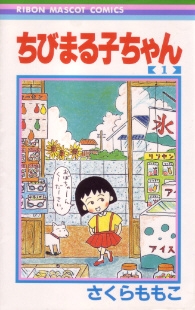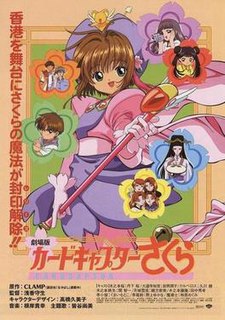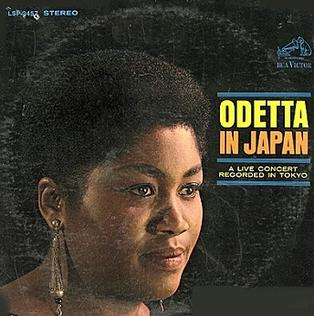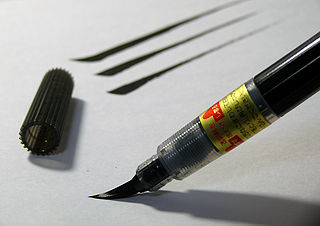Sakura is the Japanese term for ornamental cherry blossom trees and their blossoms.

Erimo is a town located in Hidaka Subprefecture, Hokkaido, Japan.
"The Elfin Knight" is a traditional Scottish folk ballad of which there are many versions, all dealing with supernatural occurrences, and the commission to perform impossible tasks. The ballad has been collected in different parts of England, Scotland, Ireland, the US, and Canada. As is the case with most traditional folk songs, there have been countless completely different versions recorded of the same ballad. The first broadside version was printed before 1674, and the roots of the song may be considerably older.

Chibi Maruko-chan is a shōjo manga series written and illustrated by Momoko Sakura. The series depicts the simple, everyday life of Momoko Sakura, a young girl everyone calls Maruko, and her family in suburban Japan in the year 1974. Maruko is a troublemaker, and every episode recounts Maruko's trouble and how she and her friends succeed in solving the situation. The series is set in the former of Irie District (入江町), Shimizu, now part of Shizuoka City, birthplace of its author.

"Sakura Sakura", also known as "Sakura", is a traditional Japanese folk song depicting spring, the season of cherry blossoms. It is often sung in international settings as a song representative of Japan.

A gel pen uses ink in which pigment is suspended in a water-based gel. Because the ink is thick and opaque, it shows up more clearly on slick surfaces than the typical inks used in ballpoint or felt tip pens. Gel pens can be used for many types of writing and illustration.
Kizuna (絆) is a Japanese word meaning "bond". It may also refer to:

Naotarō Moriyama is a Japanese pop singer-songwriter. His mother is Ryōko Moriyama, a well-known folk singer.
Tarako Isono, known under the professional name Tarako, is a Japanese actress, voice actress and singer. Her debut role was as a preschooler on Urusei Yatsura. She is currently employed by the talent management firm Troubadour Musique Office.
Momoko Sakura was the pen name of a Japanese manga artist from Shimizu, Shizuoka Prefecture. She was best known as the creator of the long-running manga Chibi Maruko-chan.

Sakura Color Products Corporation (株式会社サクラクレパス) is a Japanese manufacturing company headquartered in Morinomiya-chuo, Chūō-ku, Osaka, which produces a variety of stationery products as well a wide range of art materials. Nevertheless, Sakura is mostly known by its marker pens, such as the Pigma line. Also the famous artist “CODER”s favorite marker.

Cardcaptor Sakura: The Movie is a Japanese anime film directed by Morio Asaka and produced by Madhouse and Bandai Visual. The film is based on the anime television series adaptation of Clamp's Cardcaptor Sakura manga series. Written by Nanase Ohkawa, Clamp's head writer, it was released in Japanese theaters on August 21, 1999. It won the Feature Film Award at the 1999 Animation Kobe. A second film, Cardcaptor Sakura Movie 2: The Sealed Card, followed in 2000. Set between the first and second seasons of the television series, the film shows Sakura and her friends going to Hong Kong where they encounter a vengeful spirit who was hurt by Clow Reed in the past. The film was screened in theaters again on January 21, 2017 in Japan to celebrate the 20th anniversary of the manga.
"Kazemachi Jet / Spica" is the 14th single released by Japanese singer Maaya Sakamoto. "Kazemachi Jet" and "Spica" were featured as the ending song for the second season of Tsubasa Chronicle. Sakamoto had stated that the two songs in this single were meant to represent Syaoran and Sakura's view in Tsubasa. "Kazemachi Jet" represents Syaoran while "Spica" represents Sakura; there are several clear references in the songs.

Odetta in Japan is a live album by American folk singer Odetta, released in 1966. It was her final album for RCA Victor.
Radix Ace Entertainment Co., Ltd was a Japanese animation studio founded on December 6, 1995, and closed on October 1, 2006. The studio went by the name of Radix until it changed its name in 2005 to Radix Ace Entertainment. Much of the staff from Radix joined Seven or merged with Mobanimation to become Radix Mobanimation in 2007.

The fudepen (筆ペン), also known as "brush pen", is a cartridges-based writing implement used in East Asian calligraphy; in essence, an ink brush analogue to fountain pen.

Cardcaptor Sakura, abbreviated as CCS, is a Japanese manga series written and illustrated by the manga group Clamp. Serialized monthly in the shōjo manga magazine Nakayoshi from May 1996 to June 2000, it was also published in 12 tankōbon volumes by Kodansha between November 1996 and July 2000. The story centers on Sakura Kinomoto, an elementary school student who discovers magical powers after accidentally freeing a set of magical cards into the world; she must retrieve the cards to prevent catastrophe. Each of these cards grants different magical powers, and can only be activated by someone with inherent magical abilities. A sequel by Clamp, Cardcaptor Sakura: Clear Card, focusing on Sakura in junior high school, began serialization in Nakayoshi in 2016.

"Amazuppai Haru ni Sakura Saku" is the 1st single by Berryz Kobo × Cute, a collaboration unit between the Japanese idol groups Berryz Kobo and Cute. The single was released on November 9, 2011.

Road to Ninja: Naruto the Movie is a 2012 Japanese animated film based on Masashi Kishimoto's manga and anime series. It was released in Japan on July 28, 2012. The band Asian Kung-Fu Generation performed the theme song "Sore de wa, Mata Ashita". Both the single CD and the film's soundtrack were released on July 25, 2012. The first 1.5 million people to see the film were given the Motion Comic: Naruto DVD.












